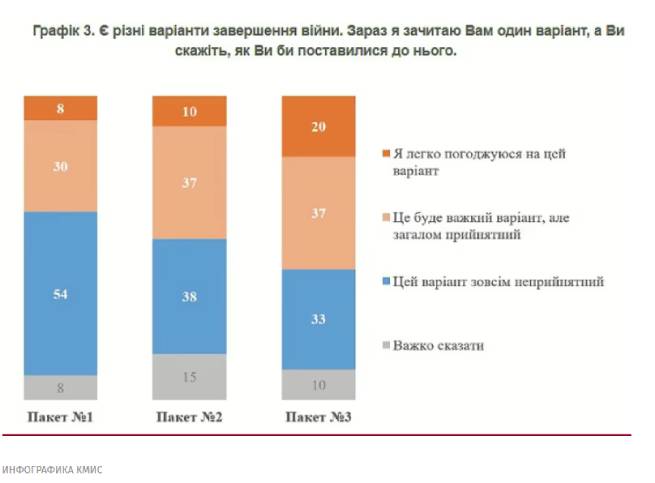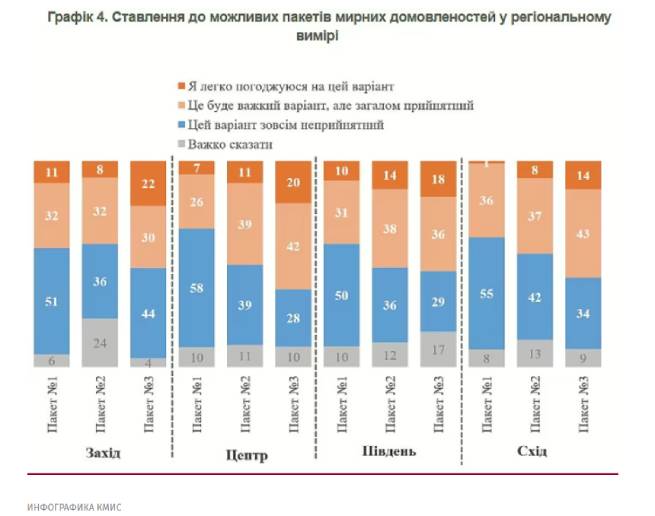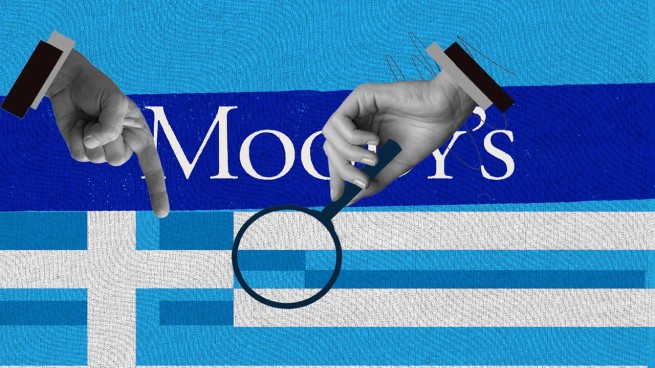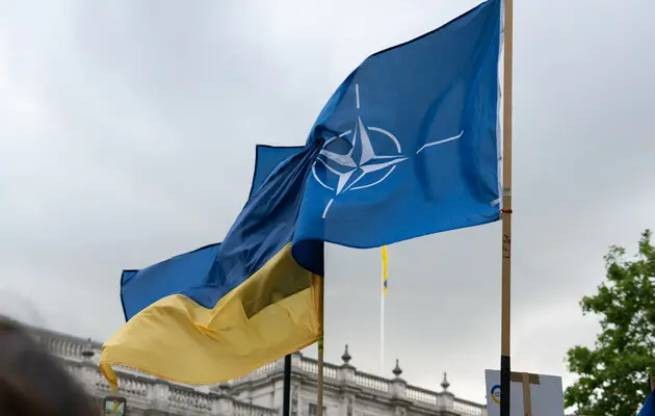Sociologists have been investigating which of the three options for ending the war suits Ukrainian citizens.
The majority of Ukrainians are categorically against agreements that would result in Ukraine postponing its entry into NATO and the liberation of territories. More moderate options are perceived a little easier.
Features of this survey
So, here are the results of the survey Kyiv International Institute of Sociologyconducted between May 16-22 and June 20-25. Sociologists conducted a small experiment of their own, “packaging” certain concessions into a package with other important agreements. Previously, a separate question was voiced for each individual concession, but in reality, any agreements are packaged and may contain a “carrot and stick.”
Experts say that a person may reject a particular concession, but if it is “packaged” in a package with other, more important aspects, then such a package may, albeit without enthusiasm, still receive approval.
KIIS modeled three packages of agreements and asked respondents to answer how they would feel about each one. One package was randomly selected for each respondent (the sentences in the package itself were also presented to different people in different orders).
Sociologists also emphasize that they specifically added the option “this will be a difficult option, but overall acceptable,” since it allows a person to express consent to a certain compromise in a more socially acceptable form.

Three simulated packages
Each package included relevant questions.
Package #1:
- Russia retains control over all currently occupied territories.
- Ukraine refuses to join NATO.
- Ukraine becomes a member of the European Union and receives from the West all the necessary funding for reconstruction.
Package #2:
- Although Ukraine does not officially recognize it, Russia retains control over the occupied territories of Zaporizhia, Kherson, Donetsk, Luhansk regions and Crimea.
- Ukraine becomes a member of NATO and has real security guarantees.
- Ukraine becomes a member of the European Union and receives from the West all the necessary funding for reconstruction.
Package #3:
- Although Ukraine does not officially recognize it, Russia retains control over the occupied territories of Donetsk and Luhansk regions and Crimea.
- Ukraine regains control over the Zaporizhia and Kherson regions in full.
- Ukraine becomes a member of NATO and has real security guarantees.
- Ukraine becomes a member of the European Union and receives from the West all the necessary funding for reconstruction.

What did the Ukrainians' answers show?
After analyzing the results, sociologists came to the conclusion that an option with postponing the liberation of the currently occupied territories and a ban on joining NATO, but with joining EUsupported by 38%, but for the majority – 54% – this option is categorically unacceptable.
At the same time, if Ukraine to gain NATO membership (in addition to EU membership)then even with the postponement of the liberation of the currently occupied territories 47% are ready to support this option, while 38% are categorically against it.
If Ukraine, in addition to membership in NATO and the EU, will also be able to liberate at least the Kherson and Zaporizhia regionsthen 57% would agree to this option (although as a “difficult compromise”, since other territories would remain under Russian control). This option would be categorically unacceptable for 33%.
Summing up the results of the survey, sociologists note:
“It is important to take into account the following points: although the Ukrainians are flexible and open to discussions regarding the parameters of peace agreements, at the same time they are unequivocally do not agree to “peace on any terms”” The attitude towards the packages considered shows that If the packages included Russia's current demands, the absolute majority would categorically reject them.”
The survey shows that the issue of ensuring security and protection from future intrusions is critically important, even a priority:
“The issue of returning all territories is a painful one for the population. KIIS polls show that the absolute majority of the population would like to see the restoration of full territorial integrity. However, some may consider this a more distant possibility and are now trying to look at this issue “pragmatically”. These results show that the return of control over the entire Kherson and Zaporizhia regions in the near future would be especially desirable for Ukrainians.”
The study was conducted in two stages using telephone interviews, based on a random sample of mobile numbers. 1,067 respondents were interviewed during May 16-22 and 2,008 respondents during June 20-25. The survey was conducted with adult (aged 18 and over) citizens of Ukraine who, at the time of the survey, were living in the territory of Ukraine that was controlled by the Ukrainian government.
The sample did not include residents of territories that are temporarily not controlled by the Ukrainian authorities (at the same time, in each sample, approximately 2% of respondents are Ukrainians who moved from the occupied territories), and the survey was not conducted with citizens who left the country after February 24, 2022.
Under normal circumstances, the statistical error of such a sample (with a probability of 0.95 and taking into account the design effect of 1.3) did not exceed 4.1% for the results of the survey conducted in May. In the survey conducted in June, an experiment was conducted: 2008 respondents were randomly distributed into three equivalent subsamples (644-694 respondents each). The results were analyzed for each sample separately and for each subsample the error is about 5%.
KIIS draws attention to the fact that in war conditions, in addition to the formal error indicated, a certain systematic deviation is added. But sociologists believe that the results obtained still remain highly representative and allow for a fairly reliable analysis of public sentiment.







More Stories
Biden did not authorize long-range missile strikes on Russia
Radoslaw Sikorski Calls on European Countries to Deprive Ukrainian Men of Social Benefits (Video)
Strategic Fork in the Road: How Russia Will React to Missile Attacks